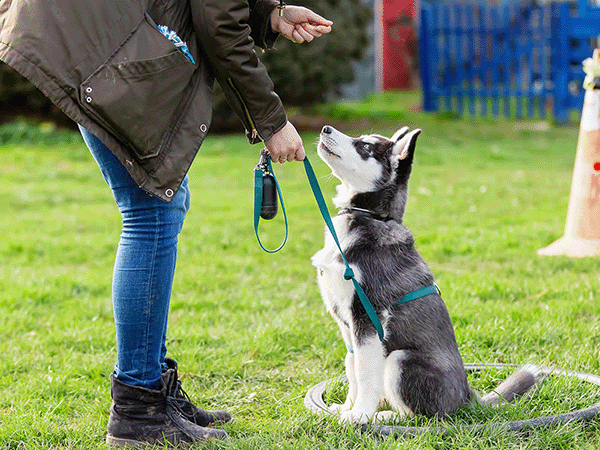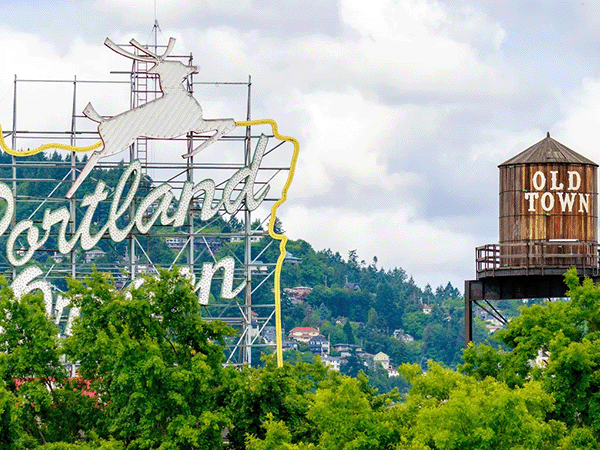Dalmatian: Breed Facts, Experience and Tips from 9,000+ Owners

Dalmatians: those iconic spotted dogs. But what's it really like to own one? Beyond the Disney movies, real-life dalmatian owners know these dogs require a lot more than just love. From understanding their unique health needs to mastering their training, there's much to learn. This guide, backed by insights from nearly 100 real-life dalmatian owners, offers practical advice for both new and prospective dalmatian owners.
In this post, we share insights from nearly 100 Sniffspot Dalmatian owners, offering practical advice for new and prospective Dalmatian owners. Whether you’re considering adopting or rescuing a Dalmatian or already have one, you’ll find valuable tips on how to care for and enjoy life with an affectionate Dalmatian.
As Sniffspot user Nicola says, “They love their people! If you are in their circle, they will give you endless love.”
- Dalmatian Facts: At a Glance
- Getting to Know the Dalmatian
- History of the Dalmatian
- Dalmatian Traits and Quirks
- What's it Like Owning a Dalmatian?
- Are Dalmatians Friendly?
- Training Your Dalmatian
- Why Do People Love Dalmatians?
- Challenges of Dalmatian Ownership
- Are Dalmatians Good for First-Time Owners?
- Tips for Dalmatian Owners
- Frequently Asked Questions about the Dalmatian
- Finding Your Dalmatian Companion
- Resources for Dalmatian Owners

Source: Sniffspot Community Breed Survey 2024
Dalmatian Facts: At a Glance
- Breed Type: Non-sporting
- Size: Medium
- Life Expectancy: 11 to 13 years
- Healthy Weight Range: 45 to 75 pounds
- Height Range: 19 to 24 inches
- Temperament: Affectionate, Trainable, Loyal
- Coat Type: Short, single
- Color: White with black or brown spots
Key Takeaways
- Dalmatians thrive on activity and training: Provide at least 1-2 hours of daily exercise and consistent training using positive reinforcement. Securely fenced areas, like those found on Sniffspot, are ideal for off-leash fun.
- This breed has unique health needs: Deafness and urinary health issues (especially for HUA Dalmatians) are common. Research reputable breeders and understand specific dietary requirements.
- Dalmatians are affectionate companions: Early socialization is key for a harmonious household with children and other pets. They are best suited for experienced owners prepared for their energetic nature and training needs.
Getting to Know the Dalmatian
According to nearly 10,000 Sniffspot community users who shared real-world data about their Dalmatians, we learned that these dogs are affectionate and trainable. The Dalmatian is also known to be very friendly and social with children and very friendly with other pets.
When living with a Dalmatian, 85% of our owners indicated that a large house with a fenced yard is ideal. Additionally, 40% of owners found that a rural or suburban area with open spaces is also acceptable. This dog is highly trainable by all types of dog owners, and owners say that the Dalmatian learns best with positive reinforcement, training aids, and consistent routines.
In terms of exercise, 50% of Sniffspot owners say their Dalmatians benefit from moderate exercise every day, including between 1-2 hours of activity each day, such as walks and active play sessions. The Sniffspot Dalmatian community would not recommend this dog for first-time owners.
History of the Dalmatian
The Dalmatian is a distinctive breed with origins tracing back to the Dalmatia region of Croatia, where it was first documented in the 16th century. Known for its striking white coat with black or liver spots, the Dalmatian initially served as a versatile working dog. It was used for guarding borders, hunting, and, most famously, as a carriage or coach dog. Dalmatians would trot alongside horse-drawn carriages, protecting passengers and calming horses.
In the 19th century, they gained popularity as firehouse mascots, helping to clear the way for fire engines drawn by horses. The breed’s athleticism, intelligence, and iconic appearance made it a favorite in show rings and pop culture, cementing its legacy as both a hardworking dog and a beloved companion.
Famous Dalmatian Owners Throughout History
Dalmatians have captured the hearts of many notable figures, showcasing their appeal beyond just being a beloved pet. Throughout history, numerous celebrities and influential individuals have owned Dalmatians, highlighting the breed's charm and companionship.
Actors such as Marlon Brando and Ingrid Bergman were known for their affection for Dalmatians. Musicians like Gloria Estefan and Waylon Jennings also embraced the breed. Athletes like Dizzy Dean and Dennis Brown shared their lives with these spotted companions. Even political figures like Queen Beatrix and George Washington owned Dalmatians. This diverse range of owners reflects the breed's widespread popularity and the special bond they form with people.
The British Dalmatian Club notes that “Dalmatians have been popular pets among a wide range of famous people throughout history.” You can find their list of famous Dalmatian owners on their website.
Dalmatian Traits and Quirks
- Temperament: Affectionate, Trainable, Loyal
- Energy Level: Moderate
- Trainability: Highly trainable – Learns commands quickly and responds well to training.
- Grooming needs: Low maintenance – Requires minimal grooming, such as occasional brushing and baths.
- Good with Kids: Very friendly and social with children
- Good with Other Pets: Very friendly with other pets
Spots and Other Distinguishing Marks
One of the most defining features of Dalmatians is their spotted coat. Interestingly, these pups are born without spots! They develop their characteristic markings after three to four months. This gradual appearance of spots is a unique aspect of the breed and adds to their charm. Beyond their spots, Dalmatians are known for their short, sleek coats that are relatively low maintenance. A quick brush now and then helps keep shedding under control and maintains a healthy shine.
While the classic black-spotted Dalmatian is the most recognizable, they can also have liver-colored spots. These variations in spot color contribute to the individuality of each Dalmatian, making them even more special to their owners. If you're curious to learn more about other breeds with unique markings or coat colors, check out our dog breed directory.
The Truth About Dalmatian Aggression
Dalmatians sometimes get a bad rap for being aggressive. However, many experienced owners and experts challenge this perception. Often, any aggression observed in Dalmatians is attributed to poor training and socialization rather than an inherent trait of the breed. Like any dog, early socialization and consistent training are crucial for a well-behaved and happy Dalmatian. Positive reinforcement methods work particularly well with this intelligent and eager-to-please breed. If you're looking for guidance on training, you can find resources on top dog trainers.
Creating positive experiences with other dogs and people, especially during puppyhood, helps Dalmatians develop into well-adjusted adults. Sniffspot offers private dog parks that can be a great resource for controlled socialization. These safe and secure spaces allow your Dalmatian to interact with other dogs in a comfortable environment.
Unlimited Energy and a Need for Company
Dalmatians are energetic dogs that thrive on activity. They need at least two hours of exercise daily to stay happy and healthy. This can include walks, runs, playtime in a securely fenced yard, or even a visit to a dog-friendly water park if your Dalmatian enjoys swimming. Their high energy levels make them excellent companions for active individuals or families who enjoy spending time outdoors.
Finding creative ways to keep your Dalmatian engaged, both physically and mentally, is key to preventing boredom and potential behavioral issues. For more tips on keeping your dog entertained, check out our resources on dog enrichment.
Equally important to their need for exercise is their need for companionship. Dalmatians thrive on being part of the family and don't do well when left alone for extended periods. They form strong bonds with their owners and enjoy being involved in family activities. If you're frequently away from home, consider arranging for a dog walker or daycare to provide your Dalmatian with the company and stimulation they need. This breed truly flourishes when they have the opportunity to interact with their loved ones and participate in daily life.
What's it Like Owning a Dalmatian?
As a Dalmatian owner, it’s important to know the best dog breed tips and what to expect from current Dalmatian owners.

Source: Sniffspot Community Breed Research 2024
Grooming Your Dalmatian
Dalmatian dogs require low-maintenance grooming. This means Dalmatian owners should expect minimal grooming, like occasional brushing and baths. Dalmatian dogs have a short, single coat, which is ideal for protection from the outdoors. Their short, single coat is considered high shed.
To keep your Dalmatian’s coat healthy and up to breed standards, brush weekly to manage shedding and maintain coat health. Of the coat types for breeds in the non-sporting group, the grooming needs for Dalmatians are considered to be low maintenance.
Dealing with Dalmatian Shedding
Dalmatians are known for their striking appearance, characterized by their short, single coat adorned with distinctive black or liver spots. While their coat is beautiful, it does come with a notable downside: shedding. Dalmatians are considered to have a high-shedding coat, which means owners should be prepared for fur around the house year-round. This doesn't mean you have to live in a permanent snow globe of white and black fur, though! With the right approach, you can manage the shedding and keep your home relatively fur-free.
Regular grooming is key. Although Dalmatians require low-maintenance grooming overall, brushing your dog weekly with a dog brush can help manage the shedding and maintain the health of their coat. This routine not only reduces the amount of fur in your home but also promotes a healthy coat by removing loose hair and debris. Look for a brush designed for short-haired breeds with firm bristles that can effectively reach the undercoat.
Beyond brushing, consider adding a deshedding shampoo to your dog's bath routine every few months. These shampoos are formulated to help loosen and remove dead hair, further minimizing shedding. And speaking of baths, while frequent bathing isn't necessary for Dalmatians, a bath every couple of months can help to remove loose hair and keep their coat looking its best.
Finally, accept that some shedding is inevitable. Even with diligent grooming, you'll still find some Dalmatian hairs around your home. Investing in a good quality vacuum cleaner designed for pet hair and keeping a supply of lint rollers handy will make cleanup much easier. If you're looking for places to take your Dalmatian for some off-leash fun, browse Sniffspot's dog parks.
Exercise Requirements for Dalmatians
Dalmatians require moderate activity each day. Though one of the most popular dog breeds, Dalmatians are considered a very athletic, high-energy breed.
Dalmatians make great pets and thrive with between 1-2 hours of activity each day, including walks and active play sessions. Owners of Dalmatians report their dogs especially love running/jogging and playing with squeaky toys.
When medium breeds like Dalmatians don’t get sufficient exercise, they’re more likely to act out with undesirable behaviors like reactivity, over-excitement, and high energy. They need consistent training, mental activity, and regular moderate exercise to avoid excess energy.
Dalmatian Diet and Nutrition
What should you feed your Dalmatian to keep them healthy? As a moderate energy breed, what you feed them is important. A reported 43% of our community feeds their Dalmatian commercial dry kibble.
With moderate exercise, Dalmatians should eat 2 to 3 cups of vet-recommended food to maintain a healthy weight of around 45 to 75 lbs. However, your Dalmatian’s ideal weight and food depend on your pet’s sex, activity level, and age.
Understanding HUA and LUA in Dalmatians
Dalmatians are prone to urinary tract issues because of high uric acid levels. Genetics and DNA testing determine if a Dalmatian has High Uric Acid (HUA) or Low Uric Acid (LUA). A purebred Dalmatian will either be HUA (Hu/Hu) or LUA (N/Hu, N/N). LUA Dalmatians are sometimes called NUA (Normal Uric Acid). LUA Dalmatians resulted from an outcross project and gained acceptance by the American Kennel Club (AKC) in 2011.
Compared to HUA Dalmatians, LUA Dalmatians have significant health advantages. The main one is a lower risk of urate stones, which means fewer urinary blockages and related health problems. When bred, N/Hu Dalmatians have a 50/50 chance of passing on the HUA (Hu) or LUA (N) gene to their puppies.
Dietary Needs for HUA Dalmatians
A serious health concern for Dalmatians is their predisposition to developing uric acid stones, which can block the urethra and require extensive veterinary treatment. Male dogs are more commonly affected because of higher uric acid levels. For HUA Dalmatians, careful diet management is essential to prevent these stones. This often means a low-purine diet to reduce uric acid. Always talk to your veterinarian to figure out the best diet plan for your HUA Dalmatian.
Common Dalmatian Health Issues
The Dalmatian breed is most prone to skin conditions (e.g., allergies, dermatitis) and digestive issues (e.g., bloating, sensitive stomach). A reported 50% of our Dalmatian owners reported skin conditions like allergies, yeast infections, impetigo, ringworm, alopecia, and folliculitis. A Dalmatian’s risk for these challenges increases as they age.
Similarly, 23% reported digestive issues like constipation, diarrhea, vomiting, and lack of appetite. Lastly, 20% of Dalmatian owners claim their dog struggles with ear infections caused by allergies, ear mites, or contact dermatitis — a common Dalmatian health concern. If you’re worried about any of these health issues above, talk to your Dalmatian’s vet.
Deafness in Dalmatians
Dalmatians are unfortunately prone to deafness. Studies suggest that between 15% and 30% of Dalmatians may experience deafness, often linked to the gene responsible for their distinctive spots. This can present unique challenges for training and communication. Early testing can help you understand if your dog is deaf and how to best support them. Specialized training techniques can help deaf Dalmatians thrive, and resources are available to support owners. For more information on Dalmatian health, check out this helpful resource from Purely Pets Insurance.
Atopy, Epilepsy, and Hip Dysplasia
Beyond deafness, Dalmatians can also be susceptible to other health concerns like atopy (allergies), epilepsy, and hip dysplasia. Atopy can manifest as skin irritations and discomfort, often requiring careful management through diet, medication, and environmental adjustments. Epilepsy, a neurological disorder causing seizures, can often be managed with medication and lifestyle changes. Hip dysplasia, a common joint issue in many dog breeds, can cause pain and mobility problems.
Choosing a reputable breeder who conducts health screenings can significantly reduce the risk of these conditions in your Dalmatian. Purely Pets Insurance offers a good overview of common Dalmatian health issues. Our own Sniffspot community research found that skin conditions like allergies and dermatitis are reported by 50% of Dalmatian owners, with the risk increasing as these dogs age. Being informed about these potential health challenges will help you provide the best possible care for your Dalmatian.
Are Dalmatians Friendly?
Another important thing to consider when adopting a Dalmatian is whether or not this breed fits with your current family. How friendly are Dalmatians compared to other medium-sized breeds?

Source: Sniffspot Community Breed Survey 2024
With consistent training, you can hone your Dalmatian’s non-sporting instinct into an affectionate and trainable family dog. Introducing your pet to positive reinforcement (treats, praise, rewards) and use of training aids (e.g., harnesses, leashes, training collars) early helps them avoid undesirable behaviors like reactivity, over-excitement, and high energy. Our community Dalmatian owners comment on their pet’s friendliness:
- Very smart and will test your limits in obedience and training (Caylee)
- If they aren’t socialized correctly as puppies, they can become a bit neurotic and fearful. (Lucky)
- Very cautious and advanced breed that requires constant stimulation and can lead to aggression if not controlled (Kay)
Dalmatians and Children
Dalmatians are known for their friendly and social nature with children, making them a popular choice for families. However, like all breeds, early socialization and training are key for a harmonious household. Introduce your Dalmatian to children of different ages and personalities from puppyhood, helping them develop appropriate social skills. Teaching children how to interact respectfully with dogs—gentle petting, avoiding sudden movements, and respecting the dog's space—is equally important. Supervised interactions, especially during playtime, ensure everyone's safety and comfort. Remember, even the friendliest dogs can get overwhelmed or react defensively if they feel threatened. A safe, enclosed space, like a fenced yard, provides a great environment for supervised play.
Consistent training reinforces positive behaviors, creating a well-adjusted companion for your children. Activities like obedience training and dog sports provide mental stimulation and strengthen the bond between the dog and family. These activities also channel the Dalmatian's energy productively, reducing undesirable behaviors. A well-trained and socialized Dalmatian can be a loving and playful companion for kids, enriching family life.
Dalmatians and Other Pets
Dalmatians generally get along with other pets, especially with proper introductions and early socialization. Expose them to various animals, sights, sounds, and experiences during puppyhood. This helps them develop into well-adjusted adults, comfortable around other animals. Positive reinforcement training shapes their interactions, rewarding friendly behaviors. If introducing a Dalmatian to a home with existing pets, gradual introductions are essential. Start by allowing them to sniff each other under a closed door, progressing to short, supervised visits in a neutral space like a dog park. This acclimates them to each other gradually, minimizing territorial behavior or conflict.
Even with socialization, remember every dog is an individual. Some Dalmatians may have a higher prey drive, requiring extra caution around smaller pets. Adequate exercise and mental stimulation contribute to positive interactions. A tired dog is less likely to engage in boisterous or problematic behavior. Regular dog training, playtime, and exercise keep your Dalmatian happy and well-adjusted, reducing aggression or anxiety around other pets. Creating a positive, structured environment fosters peaceful coexistence and a happy home.
Training Your Dalmatian
Whether you’re adopting a Dalmatian puppy or an adult Dalmatian, training is a significant part of owning a medium-sized breed. Without proper training, your Dalmatian is more likely to display undesirable behaviors such as reactivity, over-excitement, and high energy. Providing stimulating activities is a great first step, but this needs to be paired with the right training for your Dalmatian.
As a non-sporting breed, Dalmatians benefit from praise and positive reinforcement. Here’s what our Dalmatian community recommended based on their experience with their own dogs:
- Positive Reinforcement (100%): This includes treats, praise, rewards, and so on for positive behavior
- Training Aids (53%): Dog training aids like martingale collars, walking harnesses, and no-pull attachments
- Consistent Routines (50%): A consistent training routine allows your pet to get comfortable with expectations
As Dalmatians were originally bred for coaching (running along carriages), guarding, and hunting, Dalmatians are considered highly trainable by all types of dog owners.
Early Socialization and Training
Early socialization is key for a well-adjusted Dalmatian. Expose your puppy to various sights, sounds, people, and other animals, ideally starting before they are 16 weeks old. This period is crucial for their development and helps them become confident and well-behaved adults. Positive reinforcement methods, such as using treats and praise, are highly effective with this breed. Start with basic obedience commands like sit, stay, and come. Introducing training aids like harnesses and leashes early on can make walks and other outings more enjoyable.
Creating positive associations with new experiences is essential. If your Dalmatian shows any signs of fear or anxiety, don't force them into uncomfortable situations. Instead, gradually introduce them to new things at their own pace, rewarding them for brave behavior. Enrolling in puppy classes can also be beneficial, providing a structured environment for socialization and training. Check out Sniffspot's list of top dog trainers to find qualified professionals in your area.
Off-Leash Training with Your Dalmatian
Dalmatians are intelligent and eager to please, making them receptive to off-leash training. However, their independent nature and high energy levels require a solid foundation in basic obedience before venturing off-leash. Start in a safe, enclosed area, such as a fenced yard or a Sniffspot park, where they can't run off. Use a long leash initially to give them a sense of freedom while maintaining control. Practice recall commands frequently, rewarding them with treats and praise when they return promptly.
Consistency and patience are vital for successful off-leash training. Keep training sessions short and engaging to maintain their focus. Always supervise your Dalmatian closely, even when off-leash, and be prepared to use verbal cues or a leash if needed. A reliable recall is crucial for their safety and your peace of mind. Remember, off-leash privileges should only be granted in appropriate areas and when your Dalmatian demonstrates consistent obedience.
Dealing with Stubbornness During Training
While Dalmatians are generally eager to please, they can sometimes exhibit a stubborn streak. This is often a sign of their intelligence and independent thinking, rather than defiance. The key is to stay patient and consistent with your training methods. Avoid harsh corrections or punishment, as this can damage your bond and make them less willing to cooperate. Instead, focus on positive reinforcement techniques, rewarding desired behaviors with treats, praise, and play.
If your Dalmatian is testing your limits, it's important to establish clear boundaries and stick to them. Don't give in to their demands or allow them to get away with unwanted behaviors. Instead, redirect their attention to a more desirable activity or command. If you're struggling with their stubbornness, consider seeking guidance from a professional dog trainer. They can provide personalized advice and techniques tailored to your Dalmatian's specific needs. Remember, with patience, consistency, and positive reinforcement, you can overcome their stubbornness and build a strong, positive relationship with your Dalmatian.
Why Do People Love Dalmatians?
We asked Sniffspot Dalmatian owners what they love the most about their Dalmatian pups, and here’s what they had to say:
- She is more Dalmatian but partially GSP. She is very energetic and loving and listens well for the most part. (Aubrey)
- Incredibly intelligent, gregarious personality, extremely snuggly, fiercely loyal (Meghan)
- Their loyalty and affection toward their people and pack. And their striking coat. (Cassie)
Challenges of Dalmatian Ownership
Similarly, Dalmatian owners shared some of the biggest challenges of living with their Dalmatians:
- She loves routine, but sometimes this can make her feel entitled to things. Such as the couch, which she is only allowed on with a blanket. She also becomes destructive if she doesn’t get enough exercise. (Aubrey)
- Health problems and reactivity (not all Dalmatians have these things, but both are common in the breed) (Meghan)
- The biggest challenge is avoiding food with purines. HUA Dalmatians are prone to urinary and kidney stones. (Cassie)
The Cost of Owning a Dalmatian
Dalmatians are truly wonderful dogs, but like any pet, they come with financial responsibilities. Knowing the potential costs upfront can help you prepare and ensure you can provide the best care for your spotted friend. The initial purchase price of a Dalmatian puppy from a reputable breeder typically ranges from $500 to $1,700, according to A-Z Animals. Adopting or rescuing a Dalmatian is often a more affordable option and a wonderful way to give a dog a loving home.
Beyond the initial cost, there are ongoing expenses to consider. Spot Pet Insurance suggests budgeting $20 to $50 per month for food, depending on the brand and your dog's activity level. Professional grooming is recommended every two months, costing around $40 to $60 per session. And, as with all dogs, veterinary care is essential. Annual vet costs for a Dalmatian can range from $1,800 to $4,200, covering routine checkups, vaccinations, and potential health issues, as noted by PuppySimply. Pet insurance can help manage unexpected vet bills.
Canine Pals estimates the monthly cost of owning a Dalmatian ranges from $123 to $677. 33rd Square offers a comprehensive guide that breaks down the total cost, reminding potential owners to factor in everything from food and grooming to toys, treats, and even potential boarding or dog walking services. Finding the right fit for your lifestyle and budget is key to a happy and fulfilling experience with your Dalmatian. If you're looking for safe and enriching places for your Dalmatian to play and socialize, check out the dog parks available on Sniffspot.
Are Dalmatians Good for First-Time Owners?

Source: Sniffspot 2024 Community Dog Breed Survey
According to 83% of our Sniffspot community, Dalmatians are not a great first-time dog. This comes from their affectionate nature and moderate exercise needs. Dalmatian owners say it best:
- Too smart for their own good sometimes and untrusting of strangers. (Chandra)
- Lots of energy, can be destructive if not given time to run out of energy. (Leslie)
Tips for Dalmatian Owners
Luckily, our Sniffspot community is full of experienced, trustworthy Dalmatian owners. These Dalmatian breed owners share the most essential dog breed tips and advice for prospective or new dog owners:
Finding a Responsible Breeder or Rescue
- Do your research. Know the difference between HUA and LUA Dalmatians and how to handle the diet restrictions for HUA Dals. (Cassie)
- Definitely see the parents and only buy from breeders with good temperament (Kay)
Start Training Early
- Be ready to work hard! Start training young. They are sensitive dogs so while tools can be effective, you must use them with caution. Positive reinforcement is your friend. Teach them how to settle and do nothing along with giving proper exercise and mental enrichment or you may end up with a restless dog. Don’t expect them to go out of their way to interact with strangers – neutrality is a good thing. Work when they’re young on introducing positive feelings about strangers/friends coming to the house. Get a Dalmatian from a good, ethical breeder (if you are not rescuing), make sure you do your research! (Cana C)
- Be proactive about socialization and setting boundaries, but don’t forget about having fun with them. In my experience, they can be absolute goofballs and love to please their owners. (Chandra)
Space and Activity Requirements for Dalmatians
- Make sure you have a lot of open space, money for training, and preferably a second dog. (Jocelyn C)
- Do your research, ensure your lifestyle is compatible (being active is a must), and plan to have regular time for activities like hiking, swimming, etc. Walking is not very engaging and would be the bare minimum for this breed. (Vanessa)
Managing Aggressive Tendencies in Dalmatians
- Socialize well early in life but be prepared for an aggressive dog regardless. DO YOUR RESEARCH. My dog is 15 and still very active and requires lots of stimulation. (BH)
- I would not recommend a Dal to a first-time dog owner. They require very purposeful socialization and training. Wonderful dogs if you’re prepared for them, but not a good starter dog. (Anonymous)
Finding the Right Exercise Space for Your Dalmatian
If you're looking for safe and enriching spaces for your Dalmatian to play and exercise, Sniffspot offers a variety of dog parks and private areas perfect for energetic breeds. Our research shows that Dalmatians thrive with 1-2 hours of daily activity, including walks and active play. They need room to run and a securely fenced environment is essential for their safety and to prevent escapes.
Finding the right space can make all the difference. A large, fenced yard is ideal, but not everyone has access to this at home. That's where Sniffspot can help. With Sniffspot, you can discover nearby dog parks, trails, and even private yards where your Dalmatian can enjoy off-leash freedom and burn off some energy. This can be a great option for those living in apartments or urban areas with limited green space.
Consider options like dog water parks for a refreshing activity, especially during warmer months. If you live in an urban area, Sniffspot can help you find suitable spaces within your city. Insufficient exercise can lead to undesirable behaviors, so providing adequate space and opportunities for physical activity is crucial for a happy and well-adjusted Dalmatian.
Frequently Asked Questions about the Dalmatian
Dalmatian Lifespan
The average lifespan of a Dalmatian is typically between 11 to 13 years.
Dalmatian Size and Growth
An adult Dalmatian weighs between 45 to 75 pounds and stands between 19 to 24 inches tall.
Dalmatian Grooming Needs
Dalmatian dogs require low-maintenance grooming. Regular grooming helps to keep their coat healthy and manageable. Dalmatian dogs have a short, single coat, which is well-suited for protection from the outdoors. They are considered high shedders.
To maintain your Dalmatian’s coat, it’s important to brush weekly to manage shedding and maintain coat health. Among non-sporting breeds, Dalmatian grooming is categorized as relatively easy.
How Much Exercise Does a Dalmatian Need?
Dalmatians require moderate activity each day. Though one of the most popular dog breeds, Dalmatians are classified as moderately athletic, somewhat high-energy breeds.
Dalmatians are excellent companions and thrive with between 1-2 hours of activity each day, including walks and active play sessions. Owners of Dalmatians note that their dogs particularly enjoy running/jogging and playing with squeaky toys.
If medium breeds like Dalmatians don’t receive enough exercise, they may develop unwanted behaviors. These dogs need ongoing training, mental stimulation, and consistent exercise to channel their energy effectively.
Are Dalmatians Good with Children?
According to our data, Dalmatians are very friendly and social with children.
Do Dalmatians Get Along with Other Pets?
Our research indicates that Dalmatians are very friendly with other pets.
Feeding Your Dalmatian for Optimal Health
As a moderate energy breed, the diet of your Dalmatian is crucial. A significant 43% of our community feeds their Dalmatian commercial dry kibble.
For optimal health, Dalmatians should consume 2 to 3 cups of vet-recommended food to maintain a healthy weight around 45 to 75 pounds. The exact amount and type of food will depend on your Dalmatian’s sex, activity level, and age.
Common Health Problems in Dalmatians
The Dalmatian breed is particularly prone to skin conditions like allergies, yeast infections, impetigo, ringworm, alopecia, folliculitis, and digestive issues like constipation, diarrhea, vomiting, and lack of appetite. Our data shows that 50% of Dalmatian owners reported skin conditions like allergies, yeast infections, impetigo, ringworm, alopecia, and folliculitis. A Dalmatian’s risk for these health issues increases as they age.
Additionally, 23% reported digestive issues like constipation, diarrhea, vomiting, and lack of appetite. Finally, 20% of Dalmatian owners indicated their dog struggles with ear infections caused by allergies, ear mites, or contact dermatitis, which are common Dalmatian health concerns. If you have concerns about any of these health issues, consult your Dalmatian’s veterinarian.
Finding Your Dalmatian Companion
Bringing a Dalmatian into your life is a big decision! Their striking looks and energetic personalities are captivating, but finding a dog that truly fits your lifestyle is key. Remember, our Sniffspot community highlights that Dalmatians aren’t always the best choice for first-time dog owners—83% of Sniffspot owners agree. Their intelligence and need for activity mean they thrive with an owner who can provide consistent training and plenty of exercise. Think daily walks, playtime in a safe dog park, and engaging activities to keep their minds sharp.
Considering Dalmatian Rescue Organizations
Adopting a Dalmatian from a rescue organization is an incredibly rewarding path. You're giving a deserving dog a second chance, and many rescue organizations have already started training and socialization. Plus, you'll find dogs of all ages, from playful puppies to settled adults. So, no matter what you envision, you're likely to find a good match.
When considering rescue, research is essential! Look for reputable organizations focused on Dalmatian welfare. Ask about each dog's history, temperament, and any health concerns. Understanding the difference between HUA (Hyperuricosuria) and LUA (Low Uric Acid) Dalmatians is also crucial, as HUA Dalmatians have specific dietary needs to prevent urinary stones (learn more about HUA and LUA Dalmatians). A responsible rescue organization will openly share this information and guide you on proper care.
If you’re ready to provide the love, exercise, and training a Dalmatian thrives on, rescuing can be a wonderful way to welcome a new family member. And once you do, check out Sniffspot's dog parks and spaces—perfect spots for your Dalmatian to run and play!
Resources for Dalmatian Owners
Whether you’re a current Dalmatian dog owner or you’re considering adopting a Dalmatian, Sniffspot is here to lend a helping hand. Here are some of the most relevant resources for Dalmatian owners.
Sources:
Most recent articles
Related articles
Top dog guides per area
Dog training guides

Dog Food Aggression: Why You Shouldn't Punish It
Does your dog ever growl when you walk by their food dish? Maybe they get possessive of treats, carrying them far away and giving you side-eye when you start to approach — or snarling at your other pets or children if they get too close.

Best Dog Fields in the US: 25+ Wide-Open Spaces for Your Pup to Run Free
The best dog fields in the US offer something that traditional enclosed parks simply can't match: acres of open space where your pup can truly stretch their legs and run at full speed. From Colorado's 470-acre prairie meadows to Tennessee's award-winning "Outback," these wide-open spaces allow dogs to roam, explore, and exercise naturally while engaging instincts that cramped urban parks suppress.

The Ultimate Guide to Scent Training for Dogs
Your dog's nose is an amazing tool. Did you know they have 40 times the olfactory receptors than humans? Scent training for dogs taps into this superpower, turning everyday moments into exciting sniff-fests. It's enriching for all types of dogs – reactive, shy, or simply adventurous. Ready to explore the world of scent work for dogs? Let's get started.

Service Dog Training Costs: DIY vs. Pro
More than 80 million Americans rely on their service dogs to help them navigate the world. Task-trained assistance animals perform a huge range of life-changing—in many cases, life-saving—services: These dogs act as eyes for visually impaired handlers, provide mobility support, alert to seizures and blood sugar crashes, interrupt anxiety attacks, remind their people to take medications, and so much more.

How to Deal With Puppy Potty Training Regression

Dirty Dog Syndrome: Causes, Solutions, and Prevention
It's a cringe-worthy moment every dog owner dreads: your furry friend chowing down on something truly disgusting. If your dog has a penchant for poop, you're dealing with coprophagia. It's more common than you think, and thankfully, often manageable. This article explores the reasons behind dirty dog syndrome, from instinct to learned behavior. We'll also give you practical tips to help break this unpleasant habit.

How to Train Your Rescue Dog: A Complete Guide
* All Sniffspot articles are reviewed by certified trainers for quality, please see bottom of article for details *
Dog enrichment guides

Best Dog Water Parks in the US: 15+ Amazing Splash Destinations for Your Pup
Do you have a water-loving dog looking to burn some energy? There are countless dog parks to visit throughout our country — but some of them become far too hot in the midday sun to be safe for your pets to play. That’s why we’ve put together a list of some of the best dog water parks throughout the United States! At these locations, your pup can frolic, splash, and swim to their heart’s content.

Best Dog Fields in the US: 25+ Wide-Open Spaces for Your Pup to Run Free
The best dog fields in the US offer something that traditional enclosed parks simply can't match: acres of open space where your pup can truly stretch their legs and run at full speed. From Colorado's 470-acre prairie meadows to Tennessee's award-winning "Outback," these wide-open spaces allow dogs to roam, explore, and exercise naturally while engaging instincts that cramped urban parks suppress.

Best Toys for Herding Dogs: Keeping Your Pup Happy & Engaged
Herding dogs are amazing, intelligent companions. But that also means they need more than just a simple game of fetch. Finding the right toys for herding dogs is key to keeping them happy and stimulated. This article explores some of the best toys for herding dogs, including options specifically for breeds like Border Collies and Australian Shepherds. We'll help you discover the perfect herding toys for dogs to tap into their natural instincts and keep them entertained for hours.

Tough Dog Toys for Aggressive Chewers: A Practical Guide
Does your dog destroy every toy you give them? Is your house littered with the remnants of plush toys? Are you tired of wasting money on "indestructible" dog toys for aggressive chewers that don't last? Then this post is for you. We'll cover everything you need to know about finding the best dog toys for aggressive chewers, so you can finally give your pup something safe, durable, and fun.

Daily Exercise Calculator: How Much Exercise Does Your Dog Need?
Everyone knows dogs need exercise, but how much is enough? Walks are great, but creating a truly balanced fitness plan means understanding your dog's specific needs. This post helps you develop a daily exercise calculator for your dog, considering breed, age, and lifestyle. We'll cover fun activities, understanding exercise intensity, and recognizing when your pup has had enough. Let's create a plan that keeps your dog happy and healthy!

Complete Guide To Herding With Dogs
* All Sniffspot articles are reviewed by certified trainers for quality, please see bottom of article for details *

Dog Enrichment Activities: The Ultimate Guide
Ever feel like your dog is restless or bored? They may be getting enough exercise, but still need more. That's where enrichment activities for dogs come in. Giving your dog opportunities to sniff, explore, and problem-solve can make a world of difference. Whether you have a puppy, adult, or senior dog, enriching their environment is key for their well-being. Let's explore how to add cognitive enrichment for dogs, even tailoring activities to your dog's breed with breed specific enrichment and fun enrichment games for dogs.
Dog reactivity guides

Rottweiler Aggression: Truth vs. Myth
Many dogs have gotten a bad reputation over the years for being "dangerous breeds." Rottweilers are among them. Like pit bulls and other large, blocky-headed types of dogs, these powerful and beautiful animals are often assumed to be aggressive.

Best Dog Fields in the US: 25+ Wide-Open Spaces for Your Pup to Run Free
The best dog fields in the US offer something that traditional enclosed parks simply can't match: acres of open space where your pup can truly stretch their legs and run at full speed. From Colorado's 470-acre prairie meadows to Tennessee's award-winning "Outback," these wide-open spaces allow dogs to roam, explore, and exercise naturally while engaging instincts that cramped urban parks suppress.

The Reactive Dog Chart: How to Calm Your Dog's Triggers
If your dog lunges, barks, or loses their mind at the sight of another dog, a stranger, or a bicycle, you’re living with a reactive dog (and you’re far from alone). Dog reactivity is one of the most common behavioral challenges dog owners face, and it can make even a simple walk feel stressful and isolating.

How to Socialize a Reactive Dog: A Step-by-Step Guide
Does your dog display reactivity to other pets or people—barking, lunging, or growling when they see their triggers? Whether they're a rescue still settling in, missed critical socialization as a puppy, or had a negative experience, you're not alone. Reactivity is one of the most common dog behavior concerns, and with the right approach, you can help your reactive dog feel calmer and more confident around their triggers.

What Is a Reactive Dog? The Complete Guide for Understanding and Helping Your Pup
Does your dog transform into a barking, lunging tornado the second they spot another dog across the street? You're definitely not alone. According to our research of over 4,000 dog owners, 66% of dogs show some signs of reactivity.

9 Best Online Communities for Reactive Dog Parents
Does your dog's reactivity make walks stressful? You're not alone. Many dog owners face similar challenges. This guide offers practical advice and support for managing reactivity, including finding the best online dog training for reactive dogs. We'll connect you with reactive dog support groups, share training tips, and explore resources like the best dog training app for reactive dogs. Let's build a stronger bond with your dog, together.
* All Sniffspot articles are reviewed by certified trainers for quality, please see bottom of article for details *
How To Groom a Reactive Dog
* All Sniffspot articles are reviewed by certified trainers for quality, please see bottom of article for details *
Sniffspot community guides

The State of Public Dog Parks Across the United States
From 2009 to 2020, there was a 40 percent increase in the development of public dog parks. Designated spots for canine exercise have become commonplace in every major city in North America — many pet owners won’t even consider renting an apartment that doesn’t have its own fenced-in pet area for their canine companions.

Best Dog Fields in the US: 25+ Wide-Open Spaces for Your Pup to Run Free
The best dog fields in the US offer something that traditional enclosed parks simply can't match: acres of open space where your pup can truly stretch their legs and run at full speed. From Colorado's 470-acre prairie meadows to Tennessee's award-winning "Outback," these wide-open spaces allow dogs to roam, explore, and exercise naturally while engaging instincts that cramped urban parks suppress.

How This Family is Affording Their Dream Property Through Renting it Hourly to Dogs
Thousand Oaks, California has been a safe haven for Sniffspot host, Jen, since childhood. Having grown up in busy Santa Barbara, Jen, an introvert from an early age, would seek out solitude and serenity away from tourists attractions and droves of people visiting from elsewhere. “My grandparents own 60 acres about a 30 minute drive from here, and I grew up spending every summer and every holiday visiting them on the ranch,” Jen explained. “In Santa Barbara, we wouldn't go to the beach on the weekend because that's where everybody was, so you'd find places off the beaten path where the tourists weren't. For me, the ranch was just my happy place.”

Host Tips: Ellen K. What Makes Sniffspot Successful for Me
Ellen is the host of Country Pasture Getaway, one of Sniffspot's most popular sniff spots. She has taken the time to write up the lessons she has learned about how to be a great sniff spot host.

How this Oregon Farmer is Making a Business From Renting Her Land to Dogs
Just 20 minutes outside of the busy city of Portland, Oregon, and settled right on the banks of the Columbia River, you’ll find what countless visitors have flocked to the area in search of – mountain views, crisp, clean air, and running water for miles. What you might not expect to find, however, is a hidden oasis designed just for dogs and their people, owned and operated by a farming couple and enjoyed by visitors on two legs, and four.

Host Tips: Fran T. Providing Great Guest Service at our Spot
Fran is the host of Ranch Setting, one of Sniffspot's most popular spots. She has taken the time to write up the lessons she has learned about how to be a great Sniffspot host.

How Sniffspot Helped a Nervous Rescue Work Through His Fears and Change His Family’s Life
This is the story of a family and dog rescuing each other.
Top dog trainers in the US

The Best Dog Trainers in the United States of 2026
This is a list of the top dog trainers in the United States, based on votes from the Sniffspot community and the general public.
The Best Dog Trainers in Seattle, WA of 2026
This is a list of the top dog trainers in Seattle, WA, based on votes from the Sniffspot community and the general public.
The Best Dog Trainers in Portland, OR of 2026
This is a list of the top dog trainers in Portland, OR, based on votes from the Sniffspot community and the general public.
The Best Dog Trainers in Los Angeles, CA of 2026
This is a list of the top dog trainers in Los Angeles, CA, based on votes from the Sniffspot community and the general public.
The Best Dog Trainers in New York, NY of 2026
This is a list of the top dog trainers in New York, NY, based on votes from the Sniffspot community and the general public.
City dog parks guides

Top 10 Indoor Dog Parks: A US Guide
Looking for a space to play with your dog no matter what the weather’s like outside? Look no further than our list of the best indoor dog parks in the United States! These climate-controlled spaces are growing in popularity as pet ownership increases throughout the country. As a bonus, many of them also offer dog training, boarding, grooming, or daycare services on the premises.

Best Dog Fields in the US: 25+ Wide-Open Spaces for Your Pup to Run Free
The best dog fields in the US offer something that traditional enclosed parks simply can't match: acres of open space where your pup can truly stretch their legs and run at full speed. From Colorado's 470-acre prairie meadows to Tennessee's award-winning "Outback," these wide-open spaces allow dogs to roam, explore, and exercise naturally while engaging instincts that cramped urban parks suppress.

Best Dog Parks in the US: Ultimate Guide to Public & Private Off-Leash Adventures
Is your pup giving you those pleading "let me run free" eyes? Whether you're a new dog parent or a seasoned pro looking for fresh adventures, finding the perfect off-leash paradise for your furry friend can feel ruff! From sun-soaked California beaches where your water-loving lab can make a splash to mountain trails in Vermont where your adventure buddy can chase every scent, we've sniffed out the 15 best dog parks across America.

Dog Parks Near Me: Las Vegas Edition
Looking for the perfect dog park near me in Las Vegas? You're in luck! This guide explores all the best options for your pup, from public dog parks to private dog parks near me on Sniffspot. We'll help you find the ideal spot for playtime, socializing, and fresh air. Plus, we'll cover essential etiquette and safety tips to ensure a happy visit for everyone. Get ready for some tail-wagging fun!

Top Sniffspot Locations: Find the Perfect Dog Park
Looking for the perfect dog park? Whether you need a wide-open public space or a private, fenced-in spot, this guide will help you find the best dog parks across the US. We'll cover top-rated public parks, the perks of private dog parks, and even explore Sniffspot locations – giving your pup a safe and fun place to play. Ready to find your dog's new favorite spot? Let's go!

Sniffspot: Portland's Best Private Dog Parks
Ready to discover Portland's best dog parks? Whether you're looking for a public park or the unique experience of a private Sniffspot, this guide has you covered. We'll help you find the perfect spot for your pup, with tips on what to bring, how to prepare, and even understanding dog body language. Plus, we'll explore some top Portland dog parks, including public and Sniffspot options, so you can plan your next dog-friendly adventure in the City of Roses.
Portland Dog Parks: Public & Private Options
This page is about public city dog parks and also includes Sniffspot private dog parks. Sniffspot is the largest network of private dog parks for rent in the world!
Small Dog Park Guide: Tips for Finding the Perfect Spot
Finding the perfect dog park for your small breed can be ruff! Big dog parks can be overwhelming, even dangerous, for little pups. This comprehensive guide helps you sniff out the best small dog parks for your pint-sized companion, covering everything from essential safety checklists to top recommendations for small dog parks across the US—including both public spots and private dog parks.
Dogs breeds

German Shepherd Guide: Best Family Dog? Truth from 9K Owners
The German Shepherd Dog (GSDs) are known for their intelligence, loyalty, and striking appearance. They're also incredibly versatile, excelling as working dogs and devoted family companions. This guide covers everything you need to know about GSDs, from understanding their unique traits and rich history to practical advice on training and care. So, whether you're a seasoned GSD owner or just starting your research, let's explore this remarkable breed together.

Best Dog Fields in the US: 25+ Wide-Open Spaces for Your Pup to Run Free
The best dog fields in the US offer something that traditional enclosed parks simply can't match: acres of open space where your pup can truly stretch their legs and run at full speed. From Colorado's 470-acre prairie meadows to Tennessee's award-winning "Outback," these wide-open spaces allow dogs to roam, explore, and exercise naturally while engaging instincts that cramped urban parks suppress.

Labrador Retriever: America's Best Family Dog? Owner Truth
Discover the Labrador Retriever, a breed celebrated for its playful nature, affectionate temperament, and trainability. Labradors are known for their friendly demeanor and adaptability, making them perfect family companions and versatile working dogs. As one of the most popular types of retrievers, Labs are ideal companions for various lifestyles and are recognized by the American Kennel Club (AKC) as an excellent breed for families.

Golden Retriever Advice: The Complete Owner's Guide
Golden Retrievers: they're gorgeous, playful, and incredibly popular. But before you welcome one into your home, you need the right golden retriever advice. This guide draws on the wisdom of nearly 10,000 Golden Retriever owners, offering practical tips for caring for these affectionate dogs. From understanding their high energy levels to mastering grooming and training, we'll cover everything you need to know. So whether you're already a devoted Golden parent or just starting your research, get ready to learn how to give your furry friend the best possible care.

Are American Staffordshire Terriers Good for First-Time Owners: Complete Guide
Think American Staffordshire Terriers are tough? Think again. While their muscular build might intimidate some, these dogs are known for their playful and loyal personalities. This guide draws on the experience of nearly 10,000 AmStaff owners to reveal the truth about this often misunderstood breed. Want to learn more about caring for an American Staffordshire Terrier? You're in the right place.

Australian Shepherd Facts: Breed Info & Care Guide
Discover the Australian Shepherd, an AKC breed celebrated for its trainable, playful, and affectionate nature. Despite its name, the Australian Shepherd is actually a native breed to the United States, originally developed to breed on farms and ranches. Considered a medium dog, Australian Shepherds were bred for herding beginning in the 1950s. As one of the high-energy breeds, Aussies are known for their boundless energy and need for regular exercise, including aerobic exercise.

Essential Husky Facts for Owners: Breed Guide
Discover the Siberian Husky, a breed celebrated for its curious, intelligent, and loyal nature. Considered a medium-sized dog, Siberian Huskies were originally bred in Russia for sledding, beginning in the early 20th Century. Today, they're one of the most popular active breeds in North America.




























